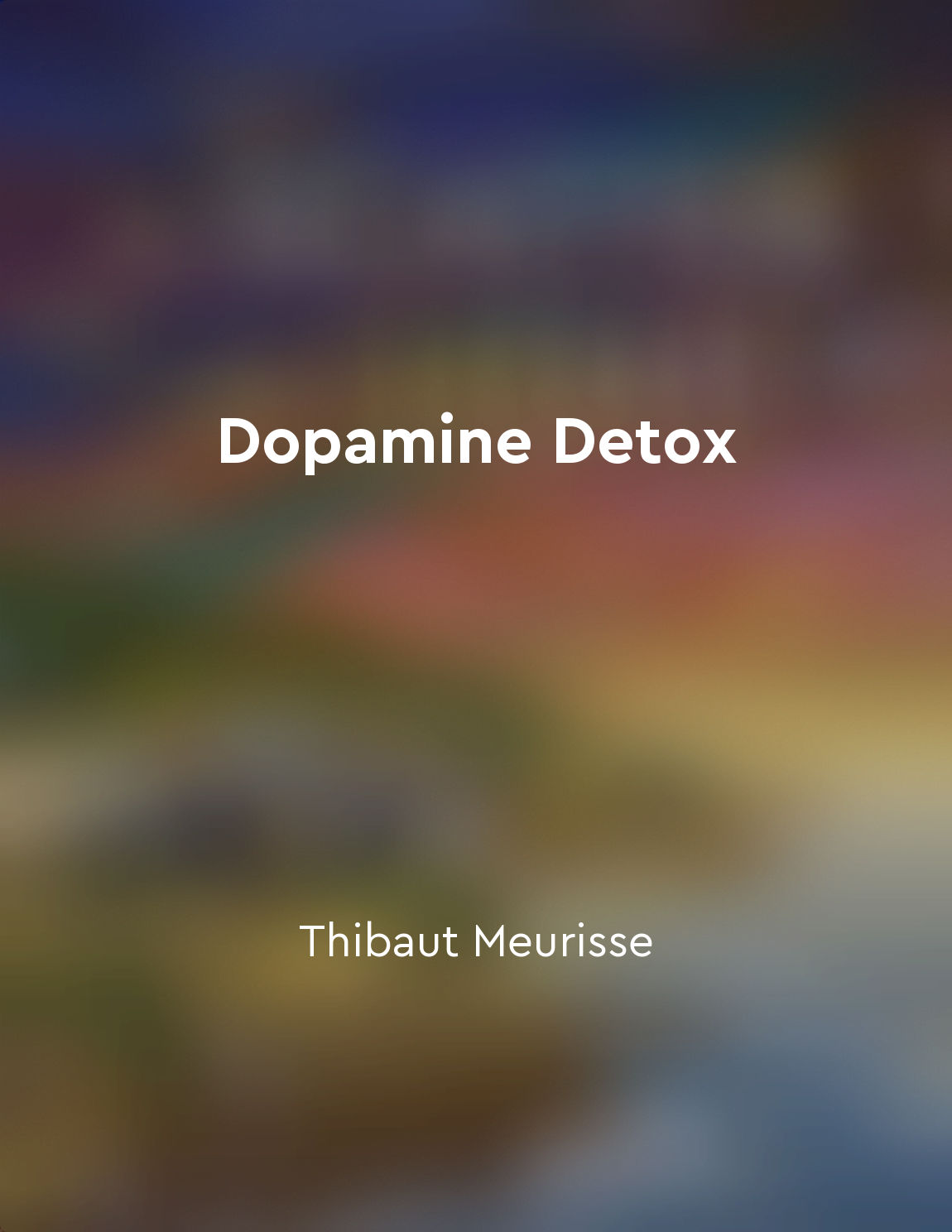Dopamine plays a key role in addiction from "summary" of Drugs, Addiction, and the Brain by George F. Koob,Michael A. Arends,Michel Le Moal
Dopamine, a neurotransmitter in the brain, is known to be heavily involved in the process of addiction. When a person consumes drugs or engages in addictive behaviors, dopamine is released in large amounts, creating a sense of pleasure and reinforcement. This surge of dopamine motivates the individual to repeat the behavior, leading to a cycle of addiction. The brain is wired to seek out rewards and avoid pain, and dopamine plays a crucial role in this reward system. Drugs and addictive behaviors hijack this system by artificially increasing dopamine levels, creating an intense feeling of pleasure that the brain remembers and seeks to repeat. Over time, repeated exposure to drugs or addictive behaviors leads to changes in the brain's dopamine system. The brain becomes less sensitive to dopamine, requiring more of the substance or behavior to achieve the same level of pleasure. This phenomenon, known as tolerance, drives individuals to escalate their drug use or addictive behaviors in search of the same high. In addition to tolerance, the brain's dopamine system is also involved in withdrawal symptoms. When the drug or addictive behavior is removed, dopamine levels plummet, leading to feelings of depression, anxiety, and intense cravings. These withdrawal symptoms can be so severe that individuals may continue using drugs or engaging in addictive behaviors to avoid them. Furthermore, the brain's dopamine system is also responsible for the formation of memories associated with drug use or addictive behaviors. These memories can be triggered by environmental cues, leading to intense cravings and a higher risk of relapse even after long periods of abstinence.- Dopamine plays a key role in addiction by influencing the brain's reward system, tolerance, withdrawal symptoms, and the formation of memories associated with drug use or addictive behaviors. Understanding the impact of dopamine on addiction is crucial for developing effective treatments and interventions to help individuals overcome their dependence.
Similar Posts

Practice mindfulness and meditation to help calm your mind
Mindfulness and meditation are powerful tools that can help you calm your mind and reduce stress. By practicing mindfulness, yo...
The importance of mental preparation for physical challenges
The key to conquering physical challenges lies in mental preparation. Your mind can either be your biggest asset or your greate...
Mindfulness practices can train your brain to sustain focus for longer periods
Mindfulness practices involve paying attention to the present moment without judgment. This helps you become more aware of your...

Crisis can be a catalyst for habit change
When a crisis occurs, it can shake us out of our routines and force us to reevaluate our habits. This disruption can create an ...
Balanced meals and mindful eating promote healthier habits
When we eat mindlessly, consuming highly palatable foods that are designed to trigger our brain's reward system, we are setting...
Selfimprovement and self-care are important aspects of recovery
Self-improvement and self-care play crucial roles in the recovery process. When you decide to quit porn, it's not just about st...
Personalized strategies are key to sustaining happy habits
To sustain happy habits, it is essential to understand that what works for one person may not work for another. This is because...
Public accountability can help in breaking bad habits
Public accountability plays a crucial role in breaking bad habits. When individuals make their goals or intentions public, they...
Monitor your progress and make adjustments as needed
As you go through your dopamine detox journey, it is crucial to keep track of how you are progressing. Monitoring your progress...

Dopamine drives us to pursue novelty and rewards
Dopamine, the neurotransmitter often associated with pleasure and motivation, plays a crucial role in driving us to seek out ne...

